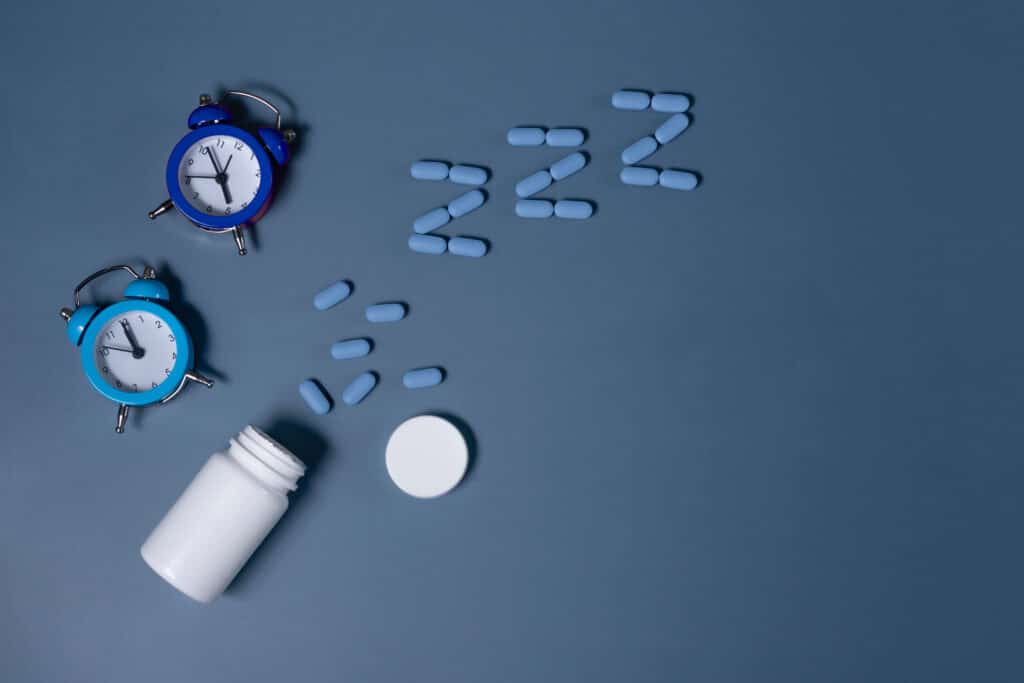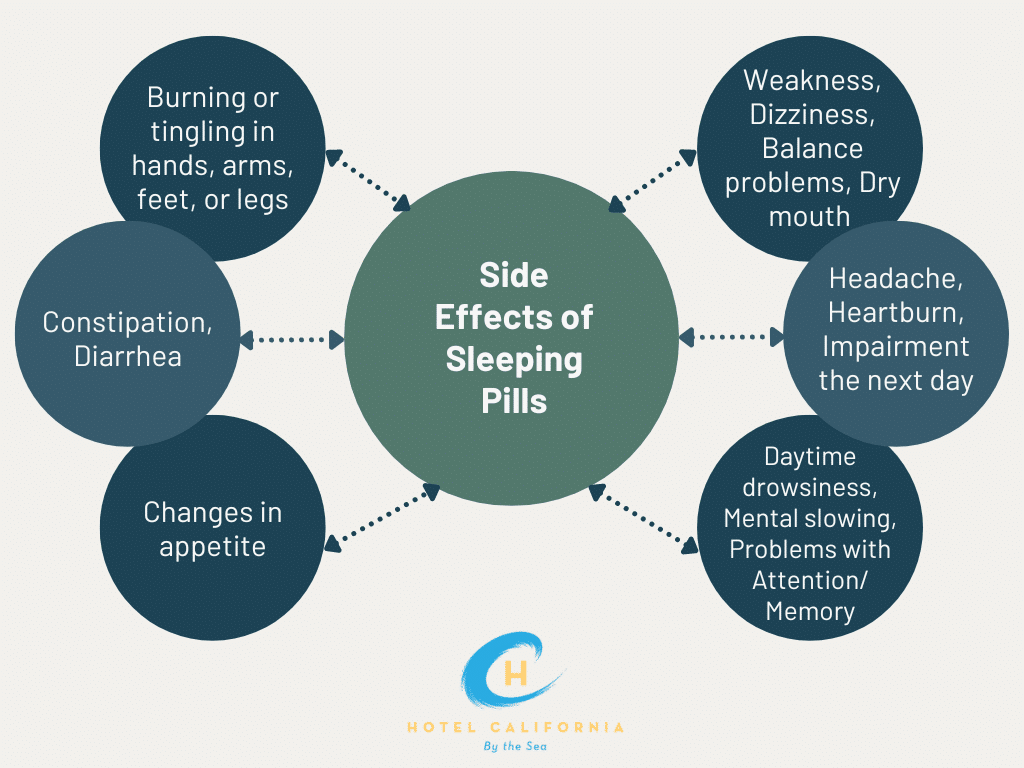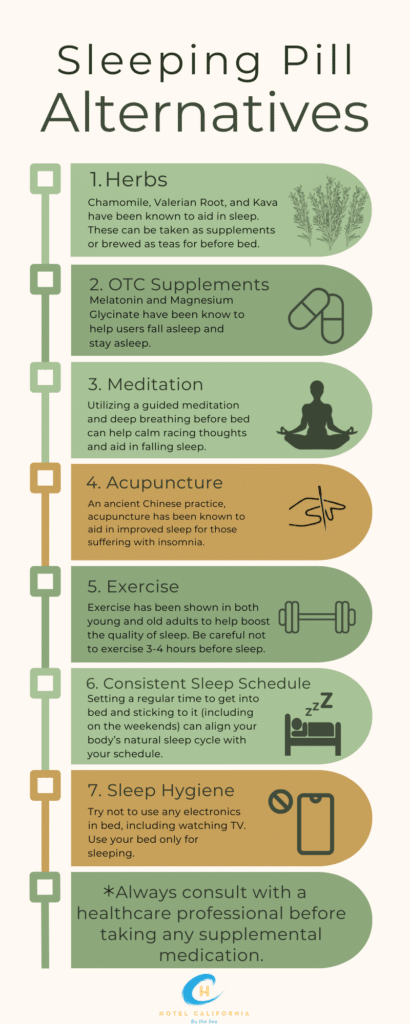Can you Overdose on Sleeping Pills?
Millions of people worldwide use sleeping pills to help them sleep or manage sleep disorders. Of that, an estimated 50-70 million Americans use both prescription sleep medications and over-the-counter sleep medications to help treat conditions such as insomnia. Generally, sleeping pills are helpful to relieve stress, ease anxiety and enable restful sleep. It is meant to help users fall asleep faster, stay asleep for longer and improve the quality of sleep. Prescription sleep aids are safe when used as prescribed. However, like any substance that acts on the central nervous system, it can become addictive and can lead to overdose. Can you overdose on sleeping pills?
Prescription sleeping pills are central nervous system depressant medications that work to slow down brain functions. They consist of benzos, anti-depressants, non-benzo, melatonin receptor agonists and sedative-hypnotics. These medications are often only prescribed for short-term use.

Types of Sleeping Pills
Benzodiazepines and anti-depressants are commonly prescribed sleeping medications. This is because of their sedative properties. Benzos produce feelings of sedation and relaxation to help the user sleep. While antidepressants treat symptoms of stress and anxiety that often hinder the ability of a person to sleep. These types of medications include Ativan, Klonopin, Valium, Prosom and Xanax. Prescription sleeping aids can start working within 30 minutes after the initial dose and last for several hours to aid in restful sleep. Benzos and anti-depressants are also highly potent and addictive prescription medications.
Over-the-counter sleeping pills do not require a doctor’s prescription and can be found in the local pharmacy or grocery store. They often contain antihistamines as the primary active ingredient. Antihistamines are allergy medications that promote drowsiness. Other common over-the-counter sleep aid ingredients include diphenhydramine, doxylamine and Nyquil.
Diphenhydramine can be found in brand-name sleep aids such as Nytol and Sominex. It is also an antihistamine that is used to treat allergies and cause sleepiness. Doxylamine is found in brands such as Unisom and Nighttime Sleep Aid. This ingredient is commonly used for short-term relief of insomnia and other sleep conditions. Nyquil is an ingredient that consists of both antihistamine and alcohol.
Can you Overdose on Sleeping Pills?
A sleeping pill overdose can occur if someone takes too much of a sedative by mistake or combines it with other drugs that enhance the sleeping pill’s sedative effects. Overdose can also happen when users become dependent on the drugs. Over time and with repeated use, the medication becomes less responsive and users end up taking too many pills. Overdosing on sleeping pills can lead to an intense state of sedation and depress the body to the point where some important functions like breathing are slowed down or even stopped.
Prescription benzos, including ones prescribed to aid in sleep conditions, have accounted for almost one in seven overdose deaths. However, they are often in combination with other substances such as alcohol, opioids and other benzos. According to the Centers for Disease Control and Prevention, benzos-related overdose deaths increased by 22% between 2019 to 2020.
A normal dose of Ambien is about 10 mg. Taking 600mg or more can cause overdose leading to a risk of death. Taking more than a dose of 270mg is considered a Lunesta overdose. This is about 90 times the recommended dosage from a medical provider. When taken with other drugs like benzos or alcohol, Lunesta overdose can become fatal. With Sonata, taking more than 200mg will cause an overdose.

Signs of Sleeping Pill Overdose
- Extreme lethargy and dizziness
- Difficulty breathing – respiratory depression
- Difficulty thinking or responding normally
- Memory impairment
- Increased coldness in the skin, bluish lips
- Slowed heartbeat
- Slurred speech
- Unconsciousness
- Vomiting and nausea
- Loss of coordination
- Extreme confusion and delirium
- Abdominal pain
Overdosing on sleeping pills such as Ambien or Lunesta can lead to dangerous sleep-related behaviors. These include sleepwalking, sleep eating or sleep driving. Can you overdose on over-the-counter sleeping pills? It is not a very common occurrence but it can happen. Overdosing on over-the-counter sleep medications can also cause alarming side effects. Melatonin overdose can lead to dizziness, headache and nausea. Antihistamines are known to last well into the next day leading to feelings of a hangover and continued intense lethargy.

What are the side effects of Prescription Sleeping Pills?
- Prolonged drowsiness
- Headache and dizziness
- Muscle aches
- Clumsiness and feelings of being off balance
- Blurred vision
- Sleep-related behaviors such as sleepwalking, sleep eating, sleep driving
- New or worsening depression
- Suicidal thoughts and behaviors
- Difficulty concentrating and forgetfulness
- Drug tolerance – over some time, the body will build up a tolerance to the effects of the sleep aid and the body will require more to feel the same desired effects
- Drug dependence – over time the body will become dependent on the drug to relax and sleep leading to the user always having to take the drug
- Withdrawal symptoms – if the user suddenly stops or drastically reduces prescription sleeping pill intake, it can cause the user to experience symptoms of withdrawal like nausea or shaking
- Rebound insomnia – this occurs when the insomnia becomes worse than before treatment was started
- Parasomnia – a condition known as a disruptive sleep disorder caused by dangerous behaviors while you’re still asleep and unconscious
Dangerous Interactions with Sleeping Pills
When sleeping pills are combined with alcohol, this can result in extreme sedation, respiratory depression and an accidental fatal overdose. Sleeping pills and opioids can cause increased confusion, dizziness, breathing problems and potential overdose. Benzos and sleeping pills cause extreme sedation.
Check Your Insurance Coverage for FREE
Find out if your insurance covers addiction treatment in minutes. We accept most insurance!
What are some alternatives to Sleeping Pills? Are there other ways to help promote better sleep?
All prescription sleep aids can produce varying side effects depending on the drug being used and how long they stay in your system. Ultimately sleeping aids mask an underlying issue caused by a possible co-occurring mental health condition. These conditions often result in stress, anxiety and the inability to sleep. There are other non-prescription alternatives to help treat sleep conditions and promote healthier sleep habits.
If you find that you are having trouble sleeping, there are some best practices to utilize before turning to any sort of medication or supplement to aid in sleep.
- Avoid large meals right before bedtime
- Avoid alcohol before bed
- In general cut back on caffeine
- Meditation throughout the day or before bed as a stress-relieving exercise. This form of relaxation training is a great way to calm and clear the mind in order to promote sleep.
- Shut off all electronic devices 30 minutes before bed. Control the amount of stimulation you are exposed to before bed. Keep it to a minimum or none at all.
- General physical activity and exercise daily
- Create a sleep schedule and stay consistent with it. This means going to bed and waking up at the same time regularly. Maintaining good sleep hygiene will help your body naturally become prepared to sleep when it’s time to sleep.
- Turn your bedroom into a dark, quiet and cool sanctuary
Now if these best practices aren’t enough, there are alternative non-prescription supplements that can help treat sleep conditions.
- Valerian Root – this sedative herb works by increasing the calming chemicals in the brain in a safe and non-habit-forming method.
- Melatonin – this is a naturally occurring hormone in the body that increases at night and is often triggered by darkness. Melatonin helps regulate the circadian rhythm of the body’s internal clock. This regulates our sleep and wake cycle.
- Magnesium – this mineral helps to improve sleep by reducing feelings of stress.
- Chamomile – this herbal supplement is often distributed in tea and contains sedative prosperities. Many people take chamomile tea before bed to ensure a restful sleep.
- Tryptophan – this basic amino acid is used in the formulation of the brain chemical serotonin. Serotonin helps induce calm and promotes sleep in the body.
- Kava – this helps to improve stress-related insomnia.
- CBD
- Ginko Biloba
- Lavender
Reach out to Hotel California by the Sea
We specialize in treating addiction and other co-occurring disorders, such as PTSD. Our Admissions specialists are available to walk you through the best options for treating your addiction.
Benzos such as Xanax and Valium are commonly prescribed medications used to treat sleep disorders such as insomnia. These types of sleeping pills have the potential to become very addictive and can lead to overdose. Hotel California by the Sea provides rigorous treatment for substance use disorders such as addiction to benzos for insomnia. The behavioral health treatment program provides all levels of care including detox, inpatient residential and various outpatient programs.
In addition to medication treatments, therapeutic methods that have been clinically proven are also utilized. These treatments consist of cognitive behavioral therapies and family and marriage counseling. Hotel California by the Sea provides unique treatments that address all aspects of addiction: physical, psychological and emotional. Overcoming an addiction is not easy. With the right tools, resources and support from addiction experts at our prescription drug treatment program, clients will have what it takes to reach sobriety and recovery.
References:
https://www.medparkhospital.com/en-US/lifestyles/sleeping-pills
https://medlineplus.gov/ency/patientinstructions/000758.htm
https://www.verywellmind.com/the-danger-of-sedative-overdose-66578
https://www.addictionhelp.com/sleeping-pills/overdose/
https://addictionresource.com/drugs/sleeping-pills/overdose/
https://www.mayoclinic.org/diseases-conditions/insomnia/in-depth/sleeping-pills/art-20043959
https://my.clevelandclinic.org/health/drugs/15308-sleeping-pills
https://www.verywellhealth.com/what-to-take-when-you-cant-sleep-3015261
https://www.helpguide.org/articles/sleep/sleeping-pills-and-natural-sleep-aids.htm
